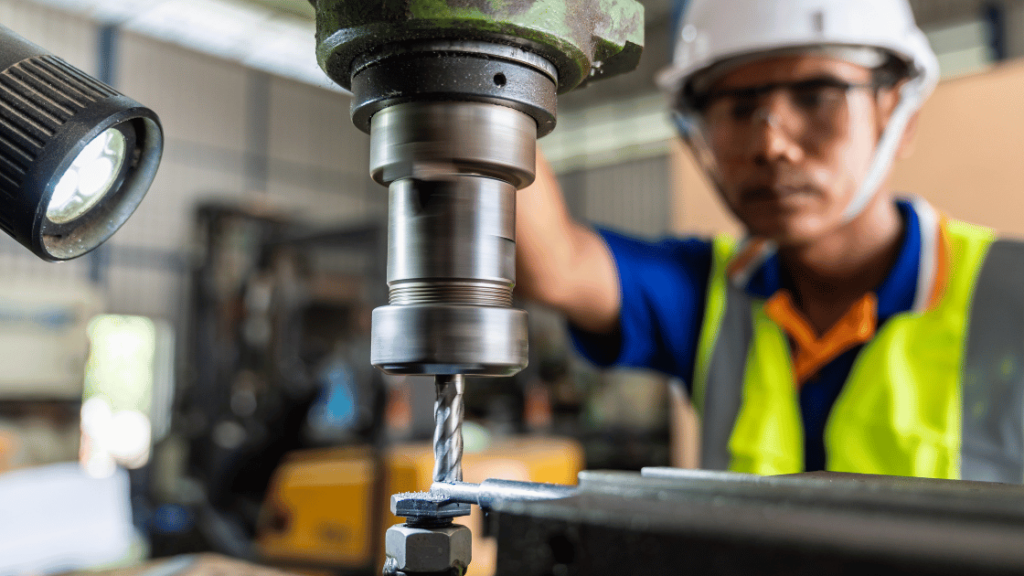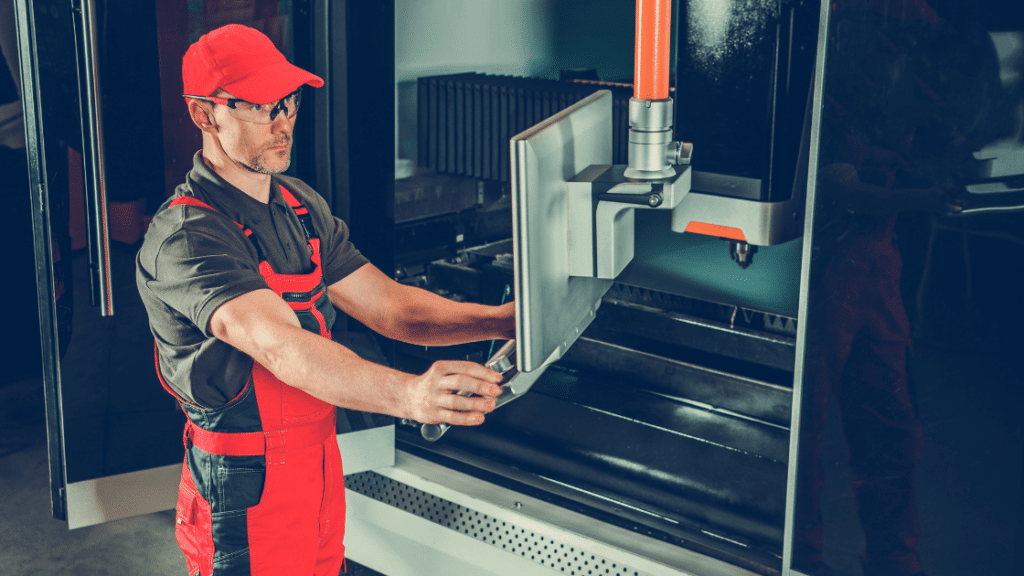Manufacturing relies on a diverse group of professions, and one key role is the Machine Operator. These skilled individuals play a vital part in ensuring that production and manufacturing facilities run smoothly and efficiently. In this blog post, we’ll dive into the world of machine operator jobs, outlining the job description and responsibilities, the essential requirements, and how you can embark on a career in this field.
Job Description and Responsibilities
As a Machine Operator, your role is diverse and essential for the production process. You’ll be responsible for operating and maintaining various types of equipment and machinery. Attention to detail is key, as you’ll need to ensure that machines are set up correctly and perform routine maintenance. Safety standards in the workplace are of utmost importance, and it’s your responsibility to follow them to ensure the safety of yourself and your team members.
Your responsibilities extend beyond the machinery itself. Effective communication skills are essential, as you’ll need to collaborate with team members, supervisors, and maintenance personnel to ensure smooth operations. Additionally, problem-solving skills will come in handy when unexpected issues arise. Essentially, you play a crucial role in the manufacturing process, ensuring that products are made efficiently and with high quality.
How to Become a Machine Operator
Becoming a Machine Operator doesn’t require a college degree. However, a high school diploma or GED is typically necessary. It serves as a foundation, ensuring that you have the basic skills and knowledge required for the job.
Attention to detail is a must. Your ability to notice even the smallest irregularities can make a significant difference in preventing production hiccups. Problem-solving skills will help you troubleshoot issues with the machines, and your communication skills will ensure you can effectively communicate problems to the right people.
If you have prior experience as a machine operator, that’s a definite advantage. It demonstrates that you have a good grasp of the job’s demands and responsibilities. However, if you’re just starting, don’t worry. You can gain experience through internships, apprenticeships, or entry-level positions in a manufacturing setting.
The Work Environment
A machine operator works in a manufacturing or production environment, often in a factory, warehouse, or workshop setting. The work environment is physically demanding, requiring operators to stand for long periods, lift heavy objects, and perform repetitive tasks. It’s also quite noisy due to the constant operation of machinery. Safety is a top priority in this working environment, with the use of safety gear such as helmets, gloves, and protective eyewear being a norm. The machine operator’s work schedule typically involves shift work, which may include evenings, weekends, and overtime to ensure round-the-clock operation.
Training and Education for Machine Operators
To prepare for a career as a Machine Operator, you can seek out machine operator job training programs, technical schools, or community colleges. Practical experience and hands-on training are invaluable, allowing you to become familiar with the machinery and processes you’ll encounter in your job.

If you’re considering a career as a Machine Operator in Connecticut, you’re likely curious about the earning potential. On average, machine operators in the region can earn a competitive salary, providing a stable and fulfilling career. Eventually, with more experience and training you can work towards becoming a programmer.
Steps to Land a Job as a Machine Operator
When searching for machine operator jobs, it’s essential to pay attention to job listings and their specific requirements. Many listings will outline the skills and qualifications they’re looking for, so be sure to match your resume and experience to these requirements.
If you’re seeking assistance in finding machine operator jobs, Hamilton Connections can be a valuable resource. We specialize in job placement and can help connect you with opportunities that match your skills and experience.
Click here to explore current job listings for Machine Operators in Connecticut and Western Massachusetts.
Becoming a Machine Operator is a path filled with opportunities and growth potential. Your high school diploma or GED, attention to detail, problem-solving skills, and communication skills are your ticket to entering this dynamic field. If you have prior experience, it’s a definite advantage, but don’t be discouraged if you’re just starting out; there are ways to gain valuable experience.
The work environment may be fast-paced, but it’s also rewarding, as you play a crucial role in the manufacturing process. So, take the first step, explore the job listings, and connect with Hamilton Connections to make your journey a smoother one.
